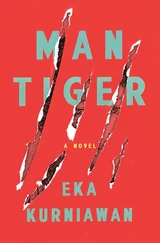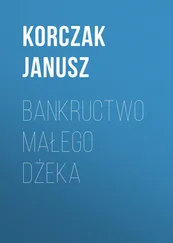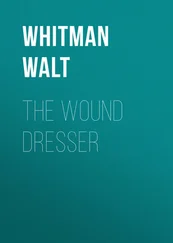“Shodancho’s child is also dead,” said Romeo.
“That doesn’t make me feel any better.”
And so the most horrifying dog massacre began, almost like the massacre of communists that had taken place eighteen years before. Who knows what would have happened if Shodancho had found out, because those dogs were the crossbreeds of the ajak that he had trained, but he was away searching for his daughter’s body. The thugs easily slashed open the dogs that were roaming in the streets, hacking them to pieces as if they were going to turn them into satay meat. Their heads were hung at street corners with blood still dripping from the napes of their necks, like a warning to all other dogs to steer clear of that city. After the strays were killed, the thugs began to eye pet dogs, knocking down house fences and killing the dogs in their cages, powerless against their killers. They also went into houses, smashing windows and attacking the pets lying peacefully in their dog beds, killing them where they lay and then throwing them into kitchen woks.
People protested, but Maman Gendeng didn’t care. “If it is true that a dog raped my daughter,” he said, “then dogs have truly inherited the evil ways of men.” He even ordered his underlings to destroy all dog owners’ property.
“We will come face-to-face with the army if you continue to wreak havoc like this,” said Romeo in a tone of undeniable fear.
“We have faced those soldiers before.”
Romeo looked at him in disbelief.
“What else do you think can be done by a man who is enraged by his daughter’s murder?” asked Maman Gendeng. “I know those people are completely without sin, but I’m upset.”
He was indeed truly furious at everyone in the city, except for his cronies, but his daughter was also sort of like an excuse. He had in fact held a grudge against the people for quite a long time, knowing for sure that they all looked down on him and his friends as unemployed goons who passed their time doing nothing but drinking beer and fighting. He also held a grudge against them for thinking of Rengganis the Beautiful as an idiot, and for having stared at her with lustful and depraved looks. He had a reason to be angry.
“They believe that we are the garbage of society,” Maman Gendeng summarized. “This is true, but many of us never got enough education to make anything of ourselves, and they closed the doors on us. What can be done if we finally became robbers, became pickpockets, and only bided our time until we could get revenge on the people who made us jealous? I was jealous when I saw good people with happy families. I wanted something like that. I finally got everything I wanted, and now, after I have tasted happiness, someone has stolen that joy from me. All my old grudges have been ripped open like a half-healed wound.”
What Romeo had been afraid of truly came to pass. Riots spread throughout the city. Some dog owners fought back, and the thugs grew all the more violent, now ruining whatever they could get their hands on in addition to dogs. Cars were demolished and signposts were uprooted and hurled, as were the shade trees lining the streets. Shop windows were broken into smithereens. A number of police posts were burned, and a number of people were injured. An extraordinary terror swept over the city, until the order for military rule was sent from the central command to the city military authority, which nominated Shodancho to straighten out the goons, and if they couldn’t be straightened out, to slaughter them.
“I have already thought for quite a while that those scoundrels should be finished off just like the communists,” said Shodancho to his wife, after coming home from another fruitless search for his daughter Ai’s body.
“After banishing Comrade Kliwon now you are going to kill Maman Gendeng?” asked his wife (she had never told him about her affair with the Comrade the day before he was found having committed suicide). “Are you going to turn all my younger sisters into widows?”
Shodancho looked at his wife, surprised.
“If he is not killed, he is going to kill everyone in this city, so what do you want me to do?” asked Shodancho. “What’s more, think about this: he failed to properly protect his own daughter, so she got knocked up, and then he forced her to marry a kid that she didn’t want to marry, so she ran away on the night she gave birth to the baby. And because she ran away, our daughter, who had been her dear friend for so long, fell sick and died. And then after she died, someone snatched her from her grave. Don’t you get it? The leader of that goon squad killed our child, our Ai — Nurul Aini the third.”
“Why don’t you also blame Eve for seducing Adam into eating the apple and forcing us to live in this accursed world,” said his wife crankily.
As it turned out Shodancho didn’t pay any attention to his wife. In addition to the chaos those thugs were causing, and the order from the central military command, Shodancho was furious over Ai’s death and was still smarting from his old grudge ever since Maman Gendeng had barged into his office and threatened him after he slept with Dewi Ayu. No one had ever threatened Shodancho to his face, not a Japanese and not a Dutchman, but this one hoodlum had dared. Even though he had seen proof of Maman Gendeng’s power with his very own eyes, Shodancho believed there were still one or two ways to kill the man, and he would use whatever means necessary. He may have been Maman Gendeng’s friend, especially at the card table, but all the same he had always longed to kill him someday. Now the time had come, so he closed his ears against whatever Alamanda had to say.
“Do it and you need not return,” Alamanda said finally, “so all three of us will become widows and everything will be fair.”
“Adinda still has Krisan.”
“So kill the boy if you are jealous.”
Shodancho himself led the operation of eradicating those thugs. He gathered all his soldiers, and pulled in some extra troops from the nearest military posts. He held an emergency meeting and made a map of where the thugs had committed acts of violence and a plan for how they would be finished off. Shodancho himself was really getting too old for a field operation, in fact he was waiting for his retirement papers, but he appeared quite energetic, and even a little bit wise. “We are not going to do it like when we slaughtered the communists,” he said. “This time, everyone who is killed must be put into a sack.”
So one truck came filled with empty sacks.
The operation was carried out at night, so as not to induce a mass panic. The soldiers spread out, carrying weapons but dressed in civilian clothes, and so did the snipers, heading for the groups of thugs. They identified as thugs anyone who was tattooed, drinking alcohol, caught making trouble, or killing dogs, and all thugs were shot right where they stood, before being stuffed into a sack and thrown into the irrigation ditch or simply left lying by the side of the road. The people who found them would bury them in their sacks: that was way more practical than wrapping them in burial shrouds.
“They are too accursed for burial shrouds,” said Shodancho, “let alone cemetery plots.”
As soon as morning came on the first day, half the city’s criminals had already disappeared, swallowed by those sacks that were tied with plastic cords. They were found along the roadways, bobbing in the river, lapped by the waves on the shore, in heaps under the bushes, and lying in the irrigation ditches. Some of them were getting pawed at by dogs, and others were being visited by flies. Not one person touched them before the afternoon. The people were overjoyed that help had come, from who knows where, to finish off each and every last one of those troublemakers. Of course they still remembered the massacre of the communists, and how they had been terrorized by their ghosts for years. But no matter, those thugs were better off turning into ghosts than living and causing trouble for so many people. So they left the corpses just as they were in their sacks, hoping the maggots and buzzards would finish them off, right down to the marrow of their bones. But when the offensive rotting stench began to ambush them and they couldn’t take it anymore, the people finally dealt with the corpses closest to their settlements, burying them in their sacks.
Читать дальше











